It takes heavy-duty machines to traverse The Frozen Continent.
Most travel to and from Antarctica and between stations there is by plane.
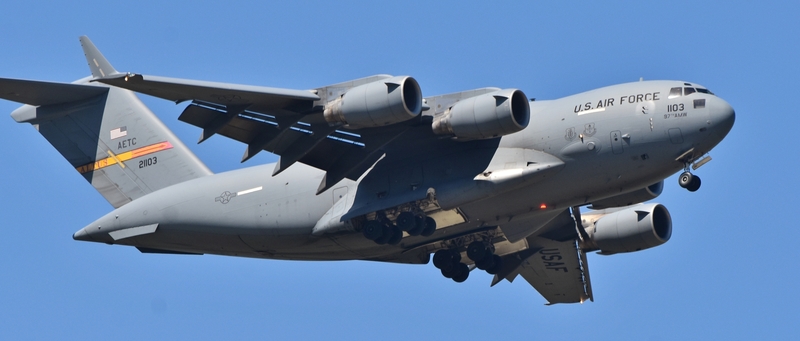
Air Force C-17 Globemaster III
The U.S. Air Force charters C-17 transports between Christchurch, New Zealand, and McMurdo Station for the U.S. Antarctic Program. These hulking workhorses boast four Pratt and Whitney turbofan engines and have a maximum carrying capacity of 170,900 pounds (77,519 kilograms). They carry most of the cargo and personnel during Antarctica’s austral season.
Each plane can carry 102 troops/paratroops, 36 litter and 54 ambulatory patients with their attendants, or a full capacity of cargo.
They land and take-off from the annual sea-ice runway near McMurdo Station, where the ice must be at least 6 and ½ feet (about 2 meters) thick to support the jets. According to the Air Force website, the two outstanding features of the C-17 are its reliability and maintainability.
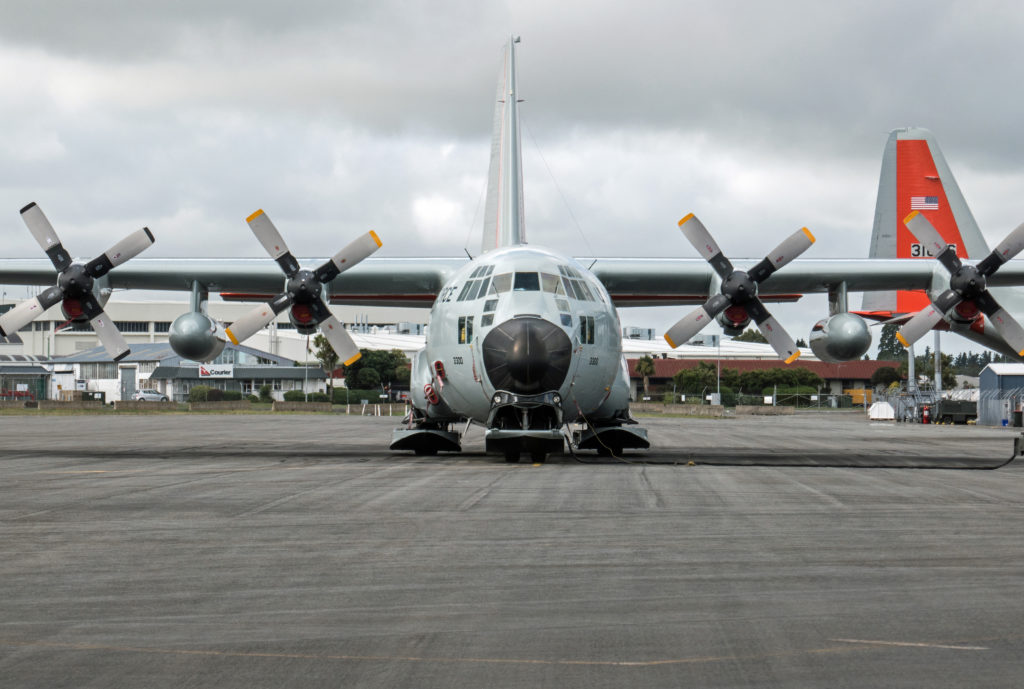
LC-130 Hercules “skibird”
Passengers and cargo shuttle back and forth between the South Pole and McMurdo Station via the LC-130 Hercules.
There are only about ten LC-130 Hercules planes in existence. Built in the 1950’s during the
Cold War to combat the Soviet Union in the Arctic, they have been repurposed to serve as transport and resupply planes in the Antarctic. They have been ski-equipped, giving them the nickname “skibird.”

Bell 212
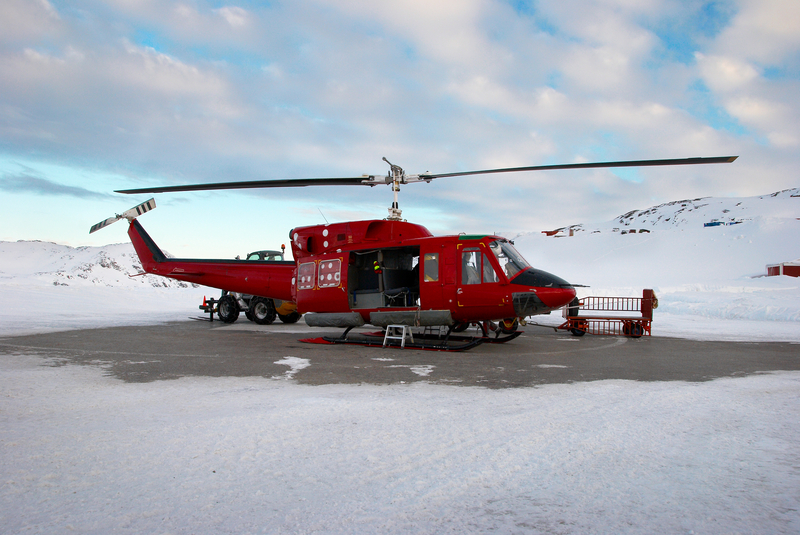
The “Puckered Penguins” were a thing.
The Puckered Penguins was the nickname of Antarctic Development Squadron Six, also known as VXE-6 or ANTARCTIC DEVRON SIX. First established on January 17, 1955, as Air Development Squadron Six (VX-6), the program supported the continuing operations of Operation Deep Freeze of the United States Antarctic Program.VX-6 completed exploratory missions, transported people and materials essential for the establishment of stations in the Antarctic, and conducted emergency evacuations.
A cartoon character drawn by Lieutenant Commander Ray E. Hall of the US Navy and dubbed “Puckered Pete” became the unofficial mascot of the VX-6 Squadron.
The squadron was redesignated Antarctic Development Squadron Six (VXE-6) on January 1, 1969. The new insignia sported a bright blue-and-gold patch featuring symbols of the Antarctic continent: a plane, helicopter, and a penguin. The insignia also bore these words:
OPERATION DEEPFREEZE
COURAGE SACRIFICE DEVOTION
ANTARCTICDEVRONSIX
The Puckered Penguins logged more than two hundred thousand flight hours in support of the Antarctic Program before being disestablished on February 24, 1999. During their existence, they supported the pioneering work of the US Antarctic Program by risking their lives to transport 195,000 passengers, as well as deliver over 240 million pounds of dry cargo and millions of gallons of fuel to Antarctica.
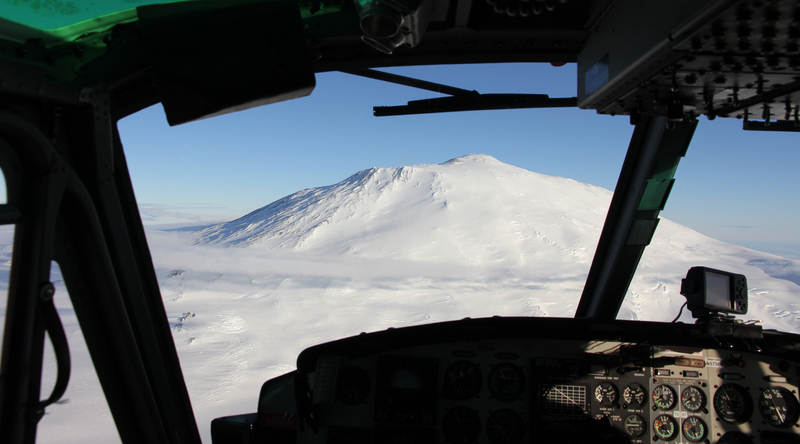
Ivan the Terra Bus
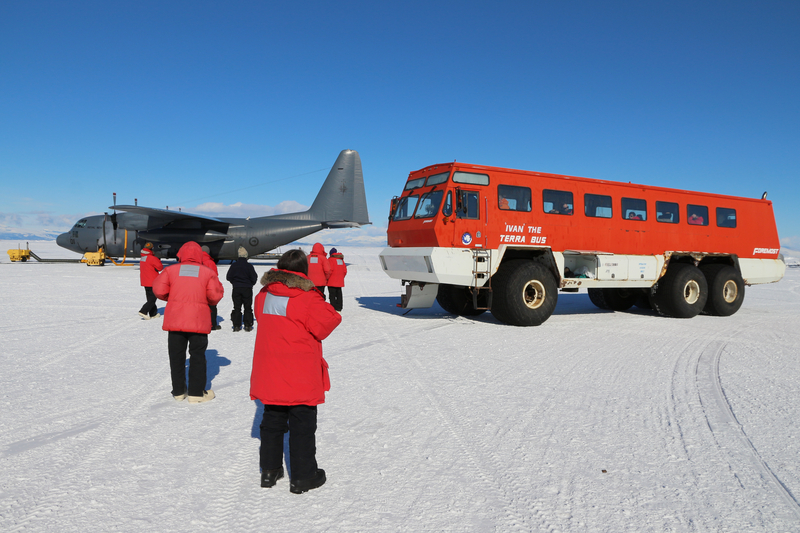
The monster van known as Ivan the Terra Bus is an invaluable mode of transportation for passengers arriving and leaving McMurdo Station via military flights. The tires along on this giant are nearly as high as a man.
Coming next week: The Year Without a Summer
Photo 115010297 © Michaelfitzsimmons | Dreamstime.com
Stock Photo ID: 1288314316 ©William Cushman|Shutterstock.com
Photo 82320466 © Martyn Unsworth | Dreamstime.com
ID4874438 © Anouk Stricher | Dreamstime.com
Photo 243267627 © Martyn Unsworth | Dreamstime.com
Photo 73752944 © Martyn Unsworth | Dreamstime.com























Leave a Reply